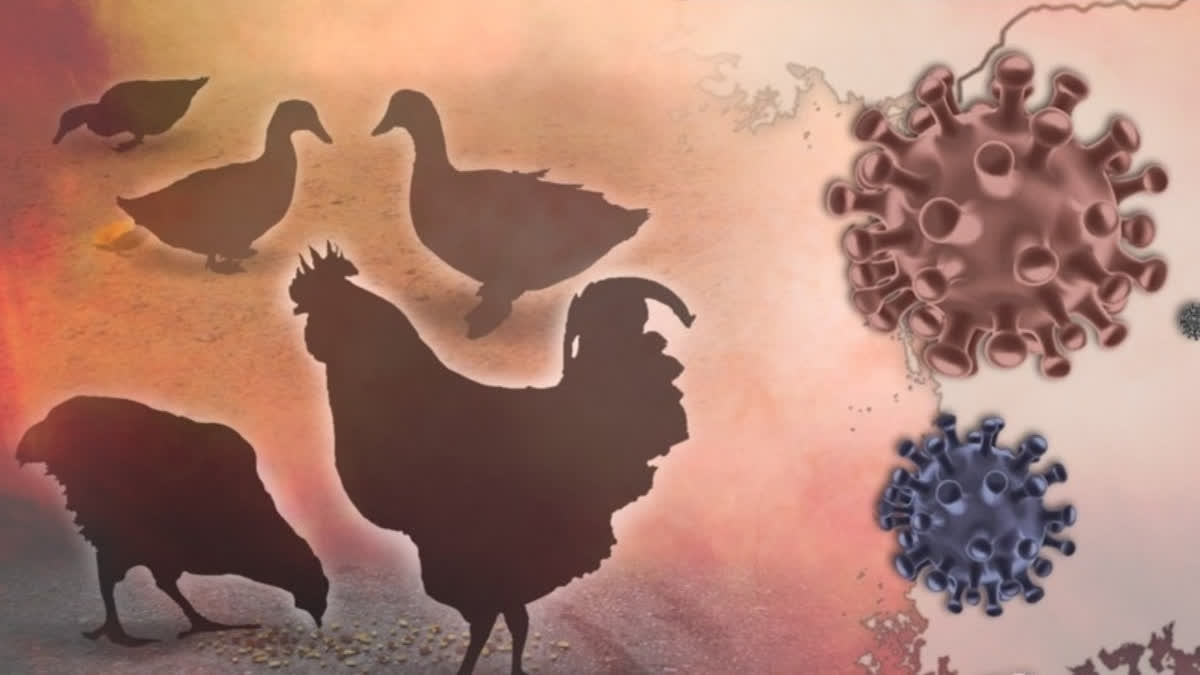Chhindwara: In view of a bird flu outbreak in Madhya Pradesh's Chhindwara district, the administration has culled thousands of poultry birds and destroyed 40,000 eggs while the collector has imposed a ban on the sale of chicken and mutton till further orders.
What is bird flu?
According to the World Health Organization (WHO), bird flu infection, also called Avian Influenza, is caused by type-A virus and can infect not only birds but also humans and other animals. It particularly affects the respiratory system. There are several strains of bird flu, including H5N1, H7N9, H5N6 and H5N8. This disease was first reported in 1997.
When did bird flu come to Madhya Pradesh?
The first case of bird flu was reported in China in 1997 after which, it hit India for the first time in 2006. Avian influenza first occurred in a poultry farm in Maharashtra's Navapur. Since then, this disease has been spreading from time to time in many states, including Madhya Pradesh. According to Gavi.org, more than 1 crore chickens and birds have been culled due to bird flu since 2006, causing huge economic losses to the states.
Non-veg sale will not allowed in Chhindwara for one month
In order to contain the outbreak, district collector Sheelendra Singh issued an order to ban selling of chicken/meat in Chhindwara for one month. At the same time, a total of 11 wards falling within a radius of 1 km from the market have been declared infected zones.
Deputy director of the department of animal husbandry and dairy, Dr. HGS Pakshwar said, "Nearly 758 chickens, 38126 eggs and 144 kg of poultry feed have been destroyed within a radius of 1 km of the infected area in Chhindwara."
